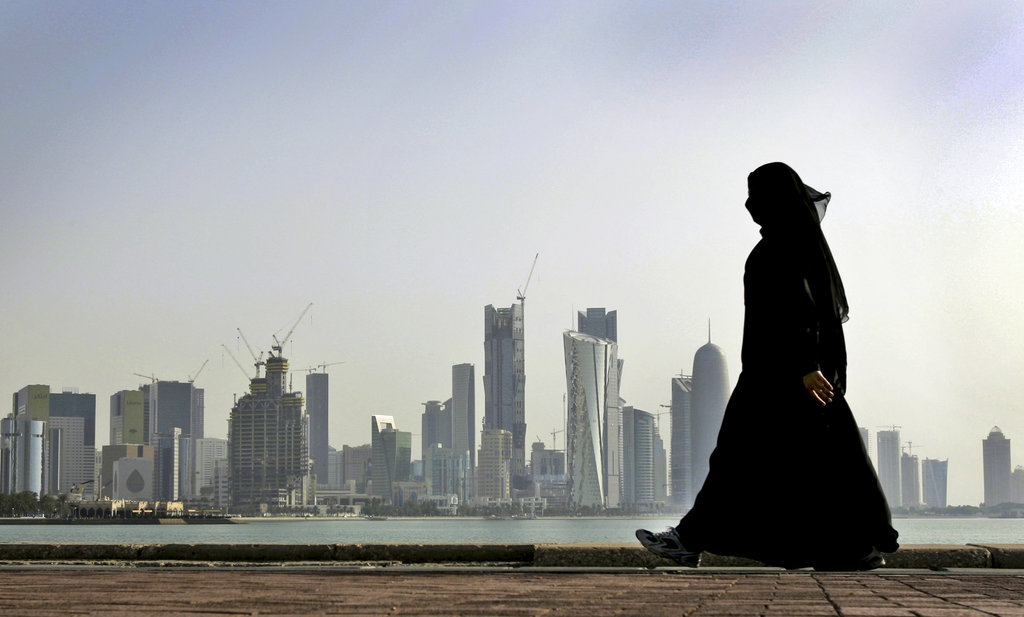
FILE- In this May 14, 2010 file photo, a Qatari woman walks in front of the city skyline in Doha, Qatar. The U.S. military says it has halted some military exercises with Gulf countries over the ongoing diplomatic dispute targeting Qatar. (AP Photo/Kamran Jebreili, File)
LONDON — The regional blockade on Qatar poses “no risk” to the 2022 World Cup going ahead, the tournament head said on Friday, maintaining that logistical obstacles are being overcome and building work is continuing with only “minimal” cost increases.
The energy-rich nation’s land border and its air and sea routes have been closed off for four months since Bahrain, Egypt, Saudi Arabia and the United Arab Emirates launched an economic boycott. It has forced World Cup organizers to find alternative sources for materials to complete the venues being used by the region’s
first major soccer tournament.
“We have come under criticism and attack over the years, but we have always faced our critics,” Qatar World Cup supreme committee secretary general Hassan Al Thawadi told The Associated Press. “Our projects are going ahead as scheduled. This (blockade) is no risk in relation to the hosting of the World Cup.”
The diplomatic crisis that has torn apart the Gulf Cooperation Council stems from allegations Qatar supports for extremist groups in the region, charges denied by Doha.
When Qatar’s sole land border with Saudi Arabia was closed and sea traffic cut off, World Cup organizers were forced to instigate their “Plan B,” including brining in supplies from Turkey. The Qataris express confidence FIFA is not exploring a “Plan B” of its own for an alternate 2022 host.
“Every project has contingency plans and we have had contingency plans in place from the very start,” Al Thawadi said in an interview during a visit to London to attend a summit staged by the Doha-based sports organization, Aspire Academy. “Once the blockade came into play we contacted the main contractors, we put
in place alternative supply chains, we sourced alternative materials from alternate suppliers.”
Only the Khalifa International Stadium, which will also host the world track championships in 2019, has been completed. Qatar is building another seven stadiums for use by 32 teams at the tournament in five years.
“I’m very happy to say that our project scale is on time and there is no significant impact on our projects,” Al Thawadi said. “As of today we haven’t seen a significant impact on the cost. There might have been some minimal increase in terms of establishing alternative supply chains but these have been absorbed very, very quickly and been normalized as these supply chains have been put in place.”
Qatar is investing more than $150 billion on infrastructure to handle the World Cup in the tiny desert nation. Under pressure from activists, Qatar has been compelled to raise living standards and worker rights for the large migrant workforce being relied on to construct venues. Al Thawadi said organizers are “always improving” worker welfare standards.
Qatar has also staved off calls for the country to be stripped of the World Cup after facing investigations into the conduct of its bid.
FIFA ethics investigators found that the Qataris used a full range of lavishly funded state and sports agencies to deliver the victory in the 2010 vote. But a World Cup bidding report, published for the first time in June, concluded there was no “evidence of any improper activity by the bid team.”